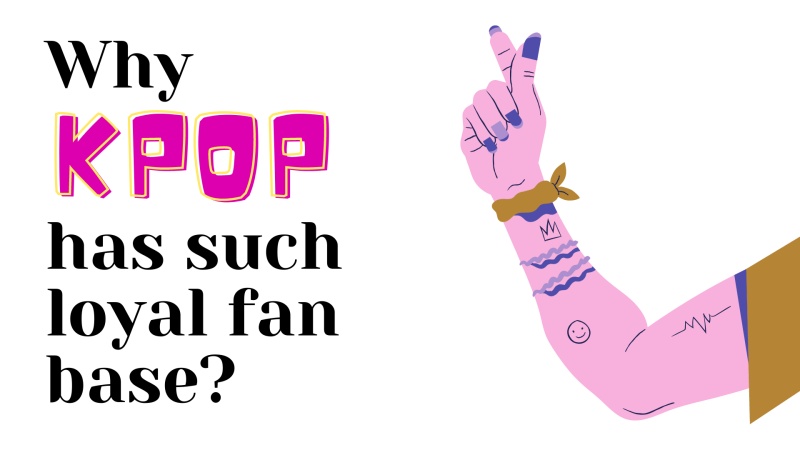- 한국어
- English
- 日本語
- 中文
- العربية
- Español
- Français
- Deutsch
- Pусский
- Tiếng Việt
- Indonesian
By Honorary Reporter Snigdha Verma from India
Illustrations = Snigdha Verma

From their music videos receiving tens of millions of views on YouTube to selling out stadiums abroad within minutes, K-pop acts are headed toward world domination. So why is K-pop so popular among its numerous fans that stay extremely loyal? Here are a few reasons.
Rabid fan support
Western pop artists are far better known internationally with a much larger fanbase than their Korean counterparts. When it comes to loyalty, however, K-pop fans rule. One of the biggest reasons for K-pop's ginormous fanbase is fandom names. All over the world, most supporters are referred to merely as fans, diluting a sense of belonging. Introducing oneself as a member of Army (the fan club of BTS) sounds better than simply saying "I'm a BTS fan." Fan group names offer fans recognition and camaraderie with each other.
K-pop acts and their management agencies also never take fans for granted, with fans having the power to make or break careers. Such acts repeatedly stress the importance of their fans in their success and make them feel important. This is why many fans can get obsessed with views and streaming, spark fan wars and exhibit aggressive behavior if their favorite act gets negative press.
Official merchandise
Light sticks, hoodies, stationery, photo books, postcards and magnets featuring a K-pop act are steadily rising in popularity to express fans' love and a sense of belonging. In theory, the more a fan owns, the greater the love. Light sticks especially help with the concert experience, making it easy for K-pop acts to identify their fans in the crowd.

Many K-pop acts each have their own distinctive light sticks. (Snigdha Verma)
Content, content and more content
K-pop is huge on promotion. After releasing an album, an act puts its best foot forward and appears at events, gives interviews and goes on TV shows. A standard practice is to perform on shows, awards ceremonies and music festivals. Sometimes a series is run on an act's life or an upcoming album, like BLACKPINK's "Light Up the Sky." A few fan groups like Solar's Mamamoo and EXO's Baekhyun also run their own YouTube channels featuring firsthand access to each act's daily life.
Around the globe, most title tracks receive an official music video, but not in Korea. K-pop songs feature not just music and lyrics, but also fabulous dance sequences and teamwork. Apart from just a music video, a K-pop song has videos showing the act perform, arrange choreography, practice in a studio or appear on an awards ceremony. The wider availability of content is thus another factor behind K-pop's enduring appeal.
Group power
K-pop has far more groups than solo artists, and there is strength in numbers here. A solo artist can either be liked or disliked with his or her music ignored simply because he or she lacks appeal as a person. But a group comprises members each having a role like rapper, vocalist or dancer. While certain members might be disliked by fans, others that are more likeable might make up for that. So having a group means no all-or-nothing proposition as it would be for a solo artist, and more members means more to offer.
Fan gatherings
A K-pop concert is far more than just a performance; it includes fan meetings, photo-ops, hi-fives, games and other things. Unlike their Western counterparts, K-pop acts occasionally organize meetups to interact with their fans.
enny0611@korea.kr
*This article is written by a Korea.net Honorary Reporter. Our group of Honorary Reporters are from all around the world, and they share with Korea.net their love and passion for all things Korean.